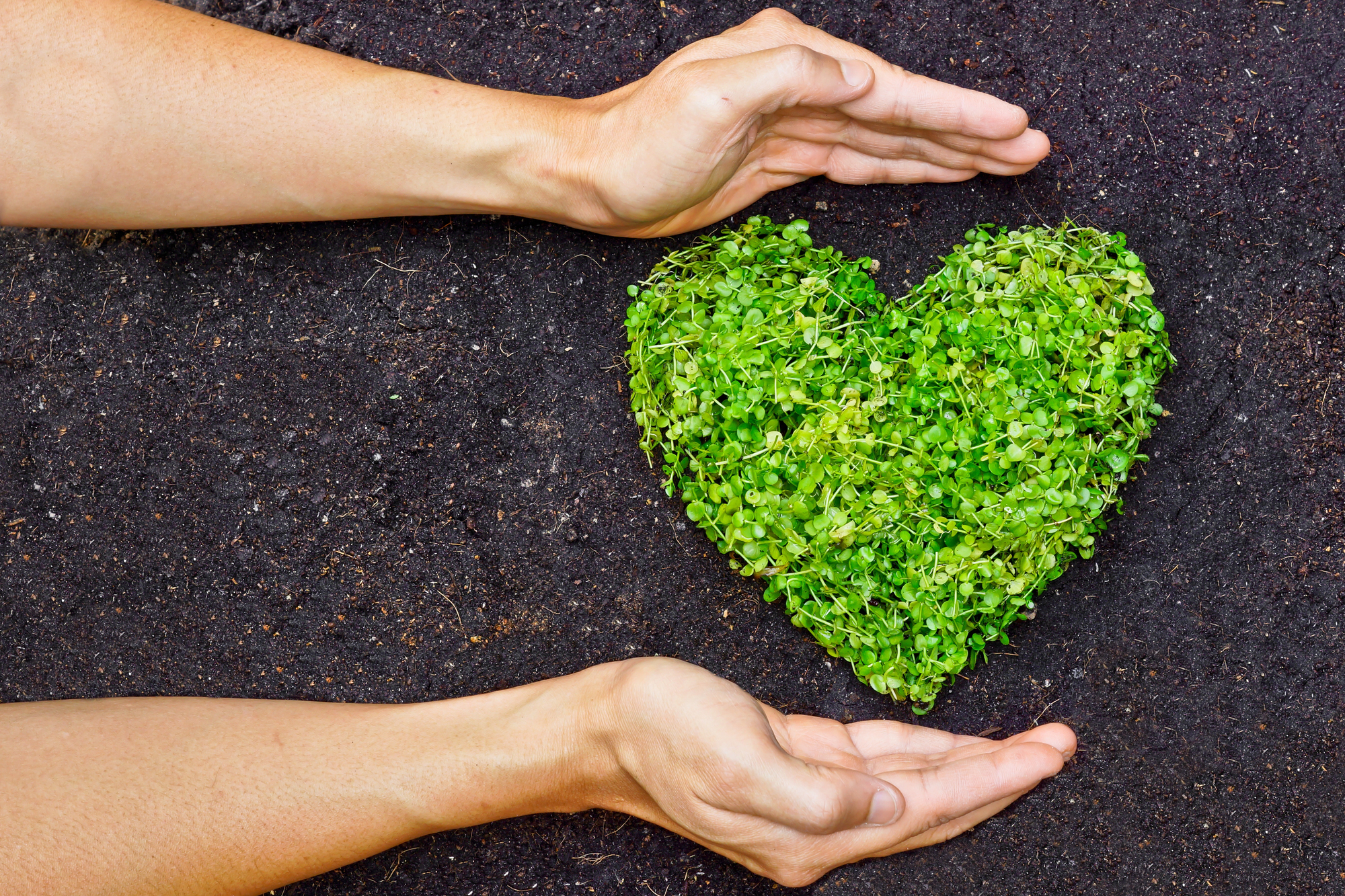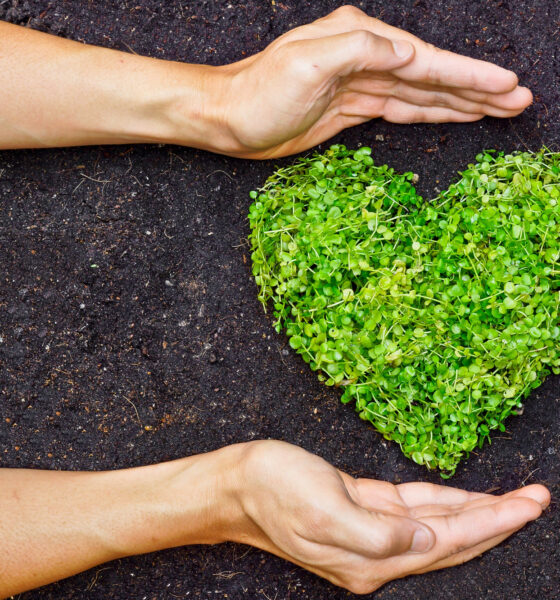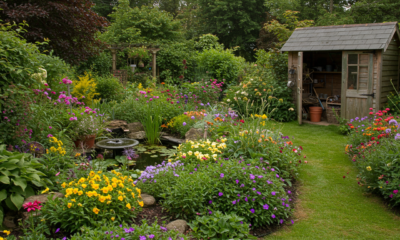

Features
6 Tips to Make the Most Out of Your Eco-Friendly Garden
Sustainability is becoming more popular than ever. One survey found that 77% of people want to live greener lives. One of the ways that you can do your part is by having an eco-friendly garden.
Most gardeners used to just live in rural areas, but the hobby has become more popular in other areas. It is estimated that between 20% and 30% of people in urban areas garden. An estimated 34% of adults in the U.S. buy plants to help wildlife.
Tips for Maximizing the Impact of Your Eco-Friendly Garden
We published another article on why gardening is the perfect hobby for environmentalists. However, we wanted to delve into the topic in more detail.
There are a lot of great reasons to have a garden and practice good lawn care if you want to help the planet. Some of the biggest benefits are listed below.
1. Compost to Reduce Landfill Waste
Probably the easiest way to begin greening your garden is to set up a compost bin. Do you know that landfills are filled to 30% with food and yard scraps?
You can compost kitchen scraps and yard clippings instead of taking them into landfills, composting them into nutrient-rich soil for your plants. Composting reduces methane emissions during waste decomposition in landfills, adding value to your garden simultaneously. Plus, it is cost-effective to enrich your soil rather than using chemical fertilizers. We have some eco-friendly composting tips that you should look at.
2. Grow Your Own Vegetables to Lower Emissions
Growing vegetables also helps lower your carbon emissions. Vegetables grown within your home have been proven to emit 2 kgs less per kilogram when compared to those store-bought. This is mainly because you do not have to transport food, which contributes to the overall carbon dioxide output of store-bought produce. Growing your own food also gives you full control over pesticides and fertilizers used, which makes it much healthier for your family.
You may want to start with easy-to-grow crops like tomatoes, lettuce, or herbs, then expand as your gardening skills improve. You can lower emissions by making your garden more productive. This includes using marking flags to garden more efficiently.
3. Reduce Transportation Emissions by Planting Locally
One of the biggest environmental benefits of gardening is that it reduces transportation-related emissions. A study from Nature Food found that transportation accounts for 19% of overall food production emissions. Growing food in your garden cuts down on the environmental cost of food miles. Sharing surplus produce with neighbors or participating in a community garden will further amplify the benefits to create a more sustainable and resilient local food system.
4. Create Wildlife-Friendly Spaces
A green garden can also support local wildlife. Native plants, flowers that feed the pollinators, and shrubs that offer shelter and food to birds, bees, and butterflies-easily make your garden a haven for biodiversity. A third of all adults in the U.S. already buy plants specifically to help wildlife, demonstrating this as one valuable way to contribute to ecological health. Have a wildlife-friendly garden, and you will be helping endangered species while reaping the benefits yourself in having your garden thrive with the help of natural pollinators.
5. You Can Avoid Harmful Chemicals
Sustainable gardening entails so much more than just planting and harvesting. Consider additional practices such as organic fertilizers and natural means of pest control. Companion planting involves planting some crops together which will repel pests that could damage the other plants, thereby cutting down on chemical pesticides one might use. One can even install a rain barrel to save water resources and lower your water bill for irrigation. Mulching of the garden beds is also one of the best ways to retain soil moisture and reduce the frequency of watering.
6. Educate and Engage Your Community
Gardening can be such a collective job that it will make you closer to people. You can share your tips, change the seeds of some very special plants, or start some common gardening projects-all ways to spread the positive impact of eco-friendly gardening. From rooftop gardening to shared community plots, urban gardening allows access not only to fresh produce but also builds community and shared responsibility for ecological stewardship. By involving others, you can inspire many to start the practices that will bring about sustainability.
The Greater Values of Gardening
Besides the environmental benefits, gardening offers a huge number of personal benefits-from extra physical exercise to a way of reducing levels of stress. Being within green spaces has positive associations with mental health and wellbeing. This is a great activity when done with children as a method of teaching about sustainability and how to take care of the planet.
Gardening is Great for the Planet
An eco-friendly garden is more than just a personal retreat—it’s a vital step toward a sustainable lifestyle. By composting, growing your own vegetables, reducing transportation emissions, and supporting wildlife, you’re contributing to a healthier planet and inspiring others to do the same. Start small, whether by planting a few herbs on your windowsill or dedicating a corner of your yard to composting. Over time, these will grow into a powerful statement of sustainability, testifying to the difference a single person can make. Our gardens can become, all together, a sign of hope pointing to a greener future for generations to come. You may want to use landscape flags and other tools to help.


 Environment12 months ago
Environment12 months agoAre Polymer Banknotes: an Eco-Friendly Trend or a Groundswell?

 Features11 months ago
Features11 months agoEco-Friendly Cryptocurrencies: Sustainable Investment Choices

 Features12 months ago
Features12 months agoEco-Friendly Crypto Traders Must Find the Right Exchange

 Energy11 months ago
Energy11 months agoThe Growing Role of Solar Panels in Ireland’s Energy Future





























